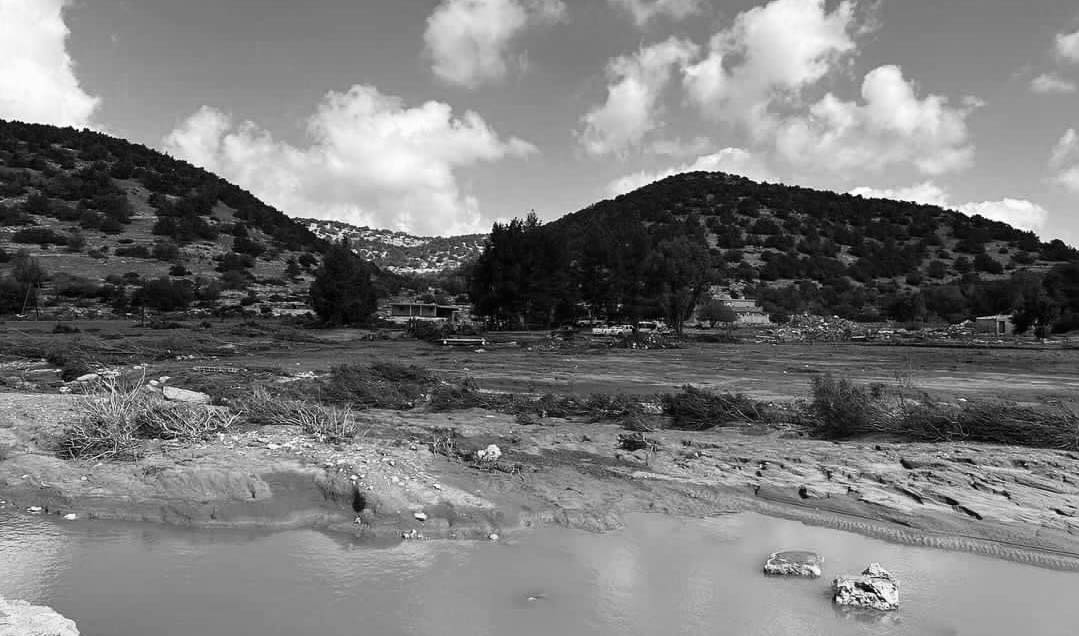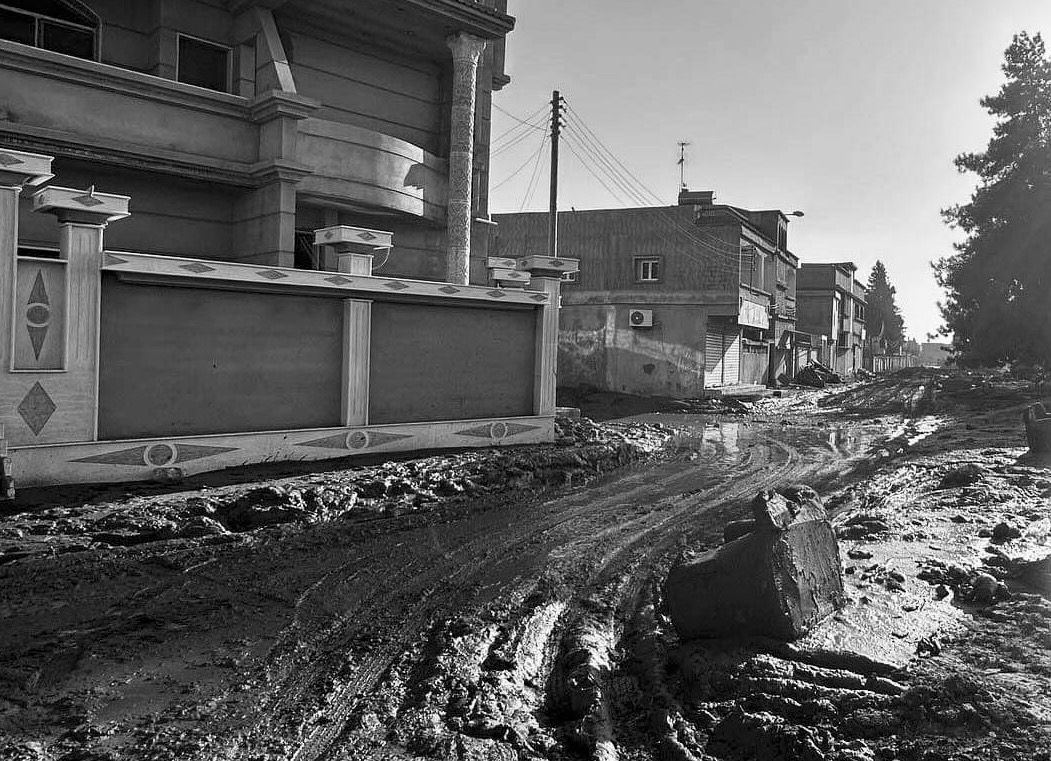Mediterranean hurricane, or “Medicane” Storm Daniel formed on the 4th of September and was named by Greek meteorologists who first predicted its formation. The storm claimed 15 lives in Greece as a result of severe flooding before moving south towards Libya. The storm hit the East of the country, disproportionately affecting the city of Derna: 25% of the city has been wiped out by mass flooding rooted in the collapse of the two main dams in Derna Valley. The dams, built in the 1970s, were ill-equipped for such severe rainfall standing at only 230 feet tall. A further four bridges collapsed, submerging the city and swiping entire neighborhoods into the sea in the span of hours. Multiple factors contributed to this disaster, which claimed over 11,300 lives with around an additional 10,000 people missing so far according to the Libyan Red Crescent – a number deemed higher when considering the irregular migrant population present in the city.
This is the first natural disaster to strike Libya since the Marj earthquakes of 1964, meaning the current regime has had limited experience in disaster prevention and response. In turn, this led many to question the degree of culpability of government actors in prevention and response mechanisms. Libya has notoriously been plagued with issues of corruption, mismanagement of national funds, and rampant instability as a result of the ongoing political crisis, armed conflict, oil blockades, and COVID-19. Ineffective political leaders and state institutions share the burden of the catastrophe in Derna. Accountability and responsibility for the catastrophic floods return to the failure of applying effective disaster management, whose four pillars – mitigation, preparedness, response, and recovery – are severely lacking in Libya. Concerns regarding the response and recovery phase encompass post-disaster public health considerations, including the potential risks associated with the handling and transmission of diseases stemming from decomposing human remains. Furthermore, water safety remains a prominent issue due to the risk of contamination resulting from flooding events.

When addressing disaster risk governance, one first considers critical infrastructure security and national resilience. In a country already suffering from the crippling infrastructure left by foreign military intervention and a decade of armed violence, adding natural disasters to the mix has proven a recipe for tragedy. The lack of an effective central government has further hampered the ability to form a coordinated response. These intersections highlight how interdependent and volatile Libyan security is. In order to address state responsibility, I look at efforts for mitigation, preparedness, and response.
Warnings and opportunities to mitigate the risk were ample, but ignored. Hydrologist Abdelwanees A. R. Ashoor of Benghazi’s Omar Al-Mukhtar University, among others, had warned that repeated flooding of the valley presented a threat to Derna. Further information on government awareness of the risk includes engineers who had previously issued generalized warnings about the risk of the dams bursting and the urgent need to strengthen their defenses. Repairs to fortify the over 50-year-old dams, which had been cracked since 1998, began in 2010 but were suspended shortly after the Libyan uprising started in 2011. Government awareness of the need for urgent maintenance is thus well documented. A government document posted on “X” (formerly Twitter) details the specific allocation of over 6 million USD for the rehabilitation and modernization of the aging dams in Derna. The allocation of these funds was scheduled for the year 2021, prompting us to inquire about the whereabouts of these funds, especially in light of the absence of any corresponding infrastructure improvements. The lack of action on said plans and allocated funds implies culpability towards infrastructural failure and the ensuing humanitarian catastrophe.
Furthermore, the annual budget for the Ministry of Water Resources under the current Government of National Unity [1] for 2022 was 420 million Libyan dinars (84 million USD). The body is legally obliged to oversee the maintenance of dams through a specific administrative body, the General Administration of Dams. According to expenditure reports published by the Central Bank of Libya, 15 million dinars were spent on salaries, with the remaining 405 million dinars being spent on other “operational expenses”.
A leaked document obtained by AfricaGate News shows that in July 2015, Dr. Jamal Al-Tahli, the head of the General Authority for Crisis and Emergency Management in the (then) Libyan government [2], sent a letter to the Prime Minister in which he warned against poor crisis management in the country and the lack of support for the Authority. The Authority also pointed out that it lacked the resources to function and further explained that dealing with crises in times of conflict is different from solving the population's problems during times of peace, emphasizing the disaster-conflict-fragility nexus. After years of conflict and insecurity, 800,000 people in Libya were already in need of humanitarian assistance before the flooding hit, according to the International Rescue Committee.
Following the catastrophe, mass protests erupted in Derna calling for accountability of those responsible for the dams' collapses and ill-preparedness that resulted in mass casualties. In the area controlled by General Haftar, Multiple protestors were detained, international media outlets were subsequently barred from entering the city and aid groups had limited access. Furthermore, there have been reports of Internally displaced persons (IDPs) currently sheltering within abandoned schools in neighboring cities to Derna, being barred from visitation, and prohibited from demonstrating. Fears of an uprising that would challenge the power of both governments have manifested in stark restrictions on freedom of movement, expression and information, prohibiting public demonstrations and access to humanitarian aid, which stand as fundamental human rights protected by international human rights law. Under orders from the Libyan general prosecutor, eight officials, including the mayor of Derna, were arrested in connection with negligence and mismanagement of the dams. However, can arrests be considered an adequate response in the midst of human rights abuses? Or is it simply damage control to quell the unrest, as initial protests called for the resignation of both strongmen, Dbeibah and Haftar, and the dissolution of their respective governments. The culture of impunity in Libya undermines trust in the domestic justice system. International non-governmental organizations like Amnesty International have called for impartial investigations to hold culpable parties accountable. Only with substantive justice can we ensure the equitable application of the law and reinforce the principles of fairness, legality, and the protection of individual and collective rights.
On a larger scale, the Derna floodings highlight the imminent threat of the climate emergency as a threat multiplier and that transnational issues require transnational coordinated responses. Capacity building for Libyan meteorologists could help produce competent informative bodies. Information and best practices sharing could also produce early warnings and help disaster mitigation. The tragedy also serves as a further reminder of how corruption and nepotism pose grave threats to state-building efforts in Libya while power-sharing agreements can have dire consequences. This deplorable situation reflects the culpability of self-serving politicians who prioritize personal gain over competence when appointing national roles, leaving a trail of suffering and injustice in their wake.
[1] The Government of National Unity is based in Tripoli and was established in March 2021 as a result of the Libyan Political Dialogue Forum launched by the United Nations Support Mission in Libya. It aimed at unifying the rival Government of National Accord (GNA), based in Tripoli, and the second Al-Thani Cabinet based in Tobruk. Abdul Hamid Dbeibeh is the Prime Minister of the Government of National Unity. Editors' note.
[2] In July 2015, the government in place was the Interim Government of Libya headed by Abdullah Al-Thinni, based in Al Bayda, standing as the internationally recognized government entity in Libya. It was appointed by the elected parliament, the House of Representatives. See also https://www.bbc.com/arabic/middleeast/2015/07/150709_libya_key_players. Editors' note.

